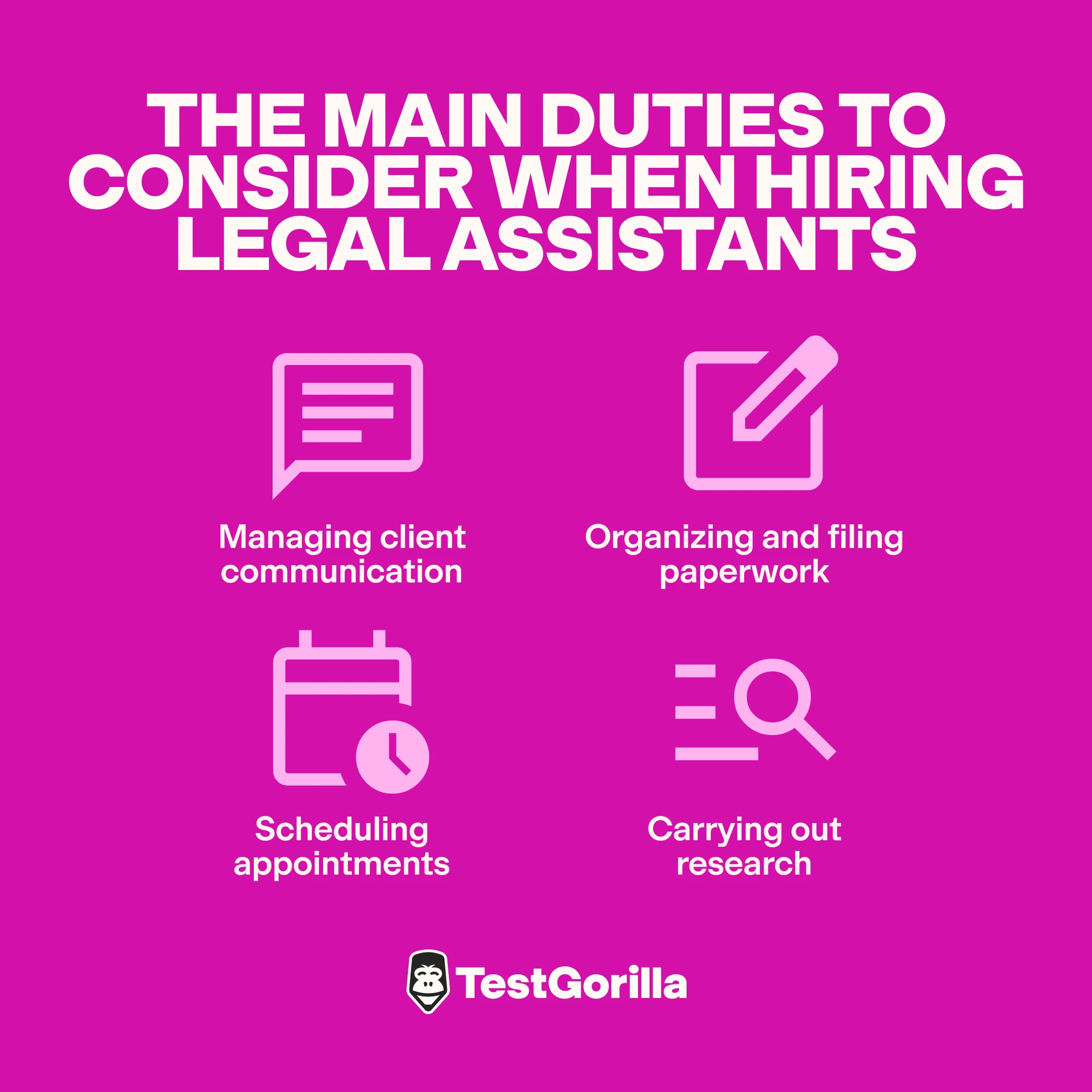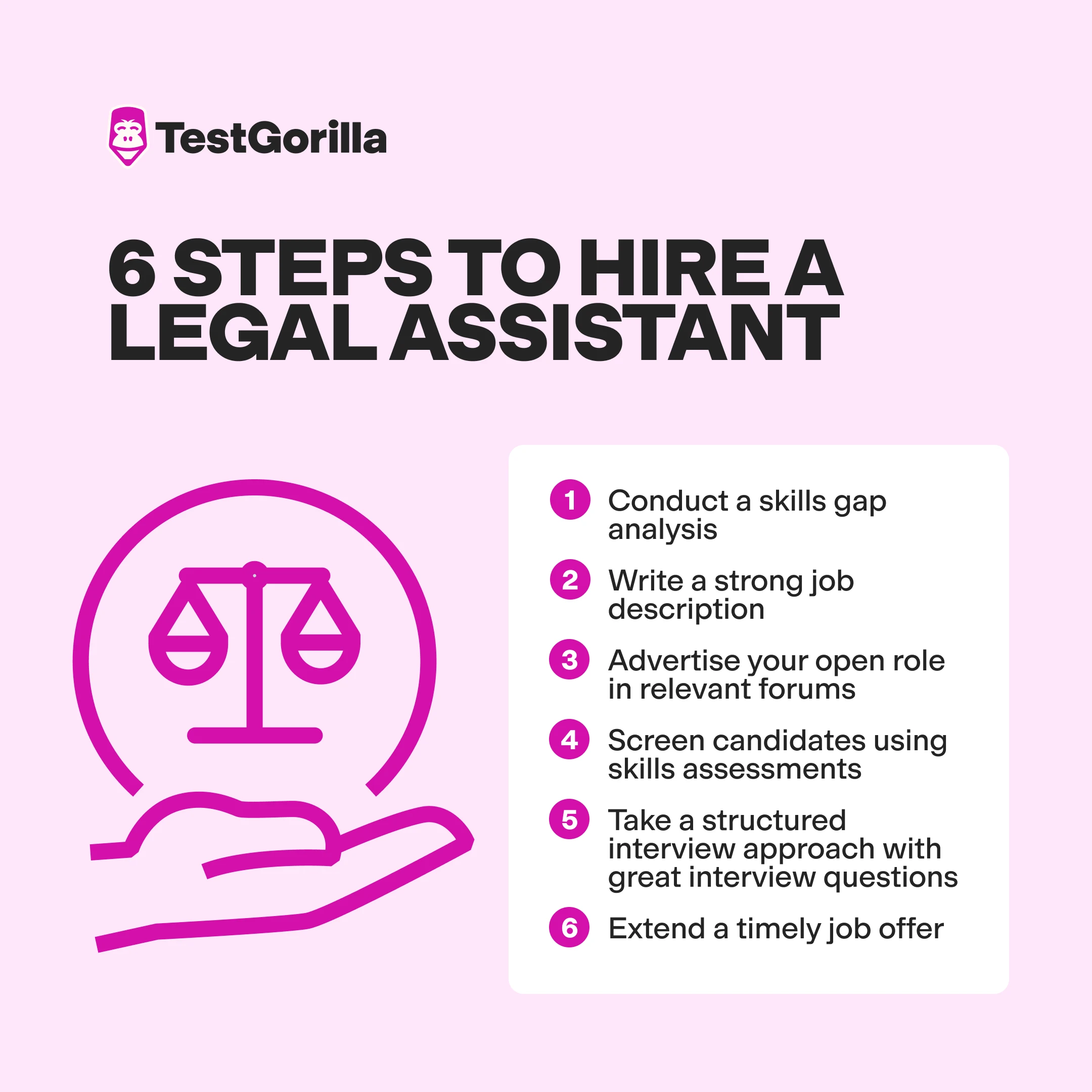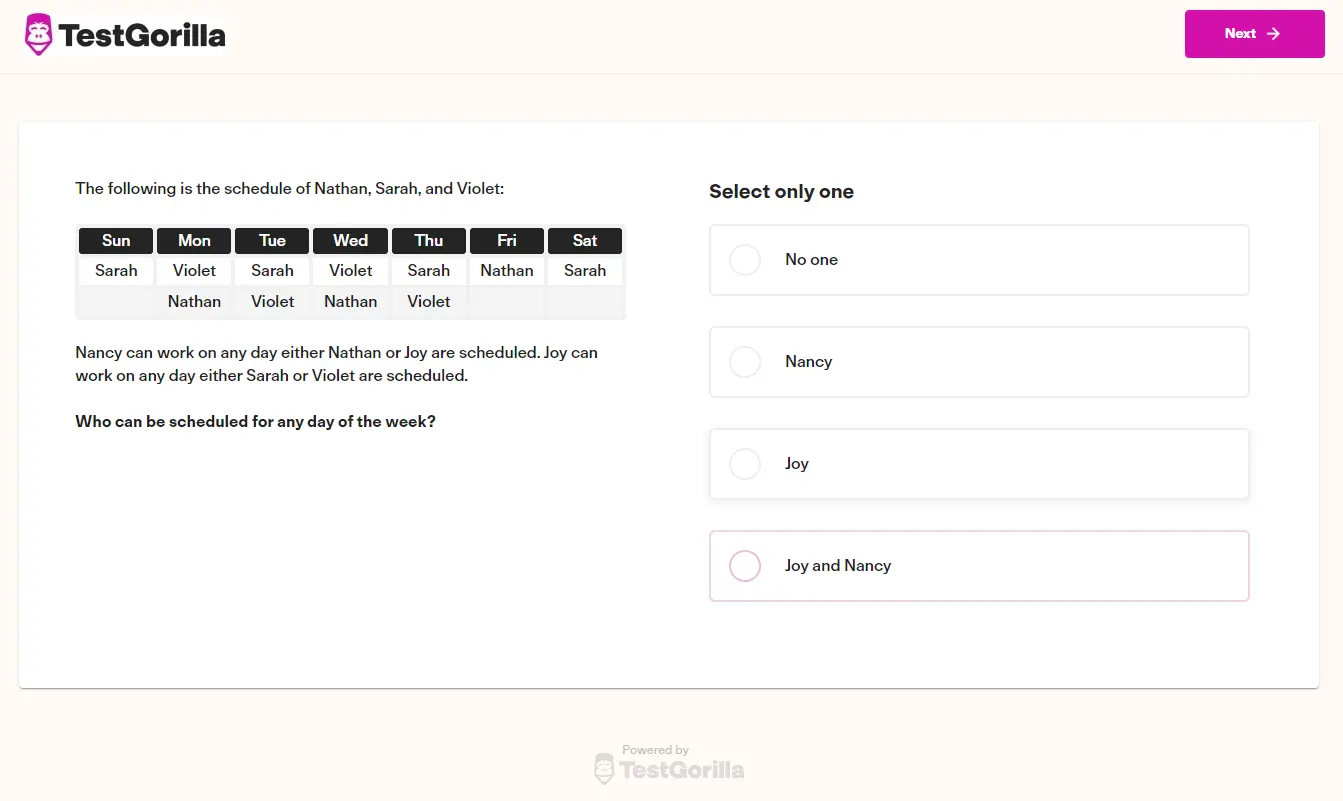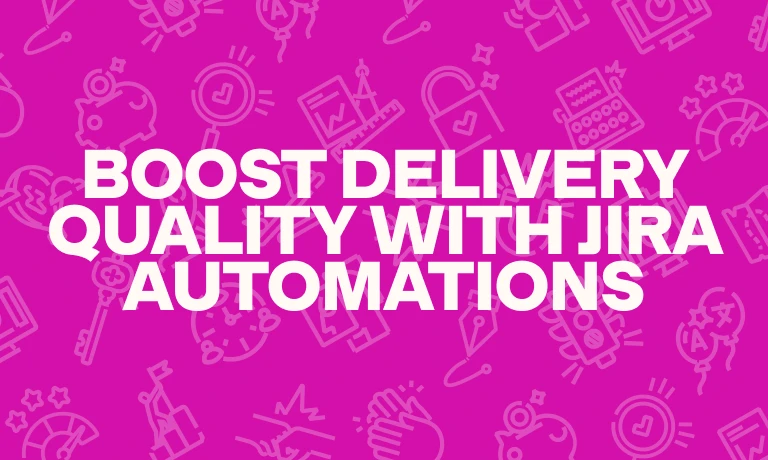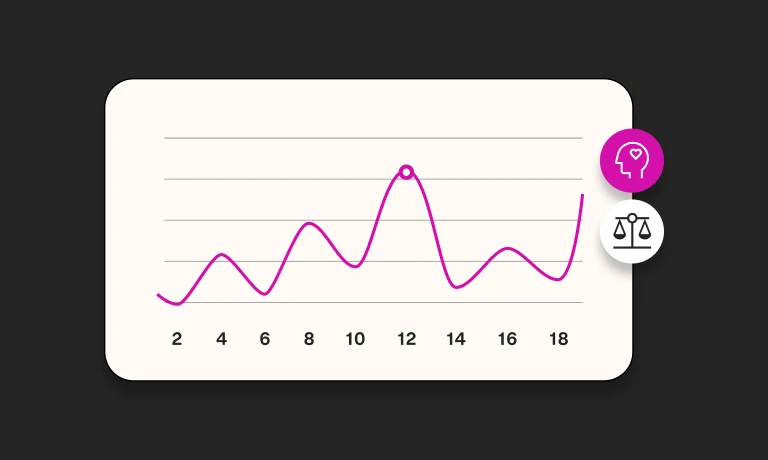Screen for skills and invite only the best candidates to interview
A good law team should run like a well-oiled machine. Attorneys and paralegals make up the engine of legal services, the client provides the resources, and legal assistants are the oil that ensures all these parts work smoothly together.
Hiring a legal assistant without the skills to do this well could lead to processes breaking down in your legal team.
In this article, we help you avoid this by discussing the differences between hiring legal assistants and paralegals, the skills and experience you should look for in candidates, and the steps to take when learning how to hire a legal assistant.
What is a legal assistant?
A legal assistant is a legal professional who offers administrative support to attorneys and paralegals to ensure the efficient operation of a law office. A legal assistant’s main duties include:
Managing client communication: Customer service is key at a law firm. Hiring legal assistants to communicate with clients and witnesses, reply to emails, and respond to live chats and calls helps ensure no wires get crossed.
Organizing and filing paperwork: Legal assistants file documents and organize briefs for the attorney before a case.
Scheduling appointments: Legal assistants schedule appointments with clients and ensure attorneys are present at court at the right time, place, and date.
Carrying out research: Sometimes, legal assistants help with research and proofreading documents. However, these legal tasks are often delegated to paralegals, which we discuss in the next section.
These tasks are time-consuming for attorneys, taking time and attention away from their court filings, legal matters, and other billable work. Hiring a legal assistant to handle these duties gives attorneys time to focus on their primary responsibility: the client and their case.
How to hire a legal assistant vs. paralegal – what’s the difference?
Legal assistants and paralegals are often referred to interchangeably, but there are differences between the two professions that you should know about when looking to hire a legal assistant.
Legal assistant | Paralegal | |
Type of work | Administrative work, such as scheduling appointments. | Legal-specific tasks, like doing research that requires specific legal knowledge, like pleading preparation and supporting attorneys in court. |
Qualifications required | Becoming a legal assistant with nothing more than a high school diploma is possible. However, most firms require their legal assistants to have advanced certification through associations like the National Association for Legal Support Professionals. | Paralegals must have paralegal studies, like at least an associate’s or a bachelor’s degree. Employers may also require additional certification from boards like the National Federation of Paralegal Associations. |
Allowed to give legal advice? | No. Legal assistants generally stick to scheduling meetings and billing. | No – however, through their extensive legal knowledge, paralegals can offer deeper insights into the legal process. |
Salary prospects | The average salary for a legal assistant in the US is $68,728.* | Salaries for paralegals are generally higher than for legal assistants. In 2024, the average salary for a paralegal in the US is between $60,950 and $122,670.* |
*These numbers vary depending on location, with law firms in metropolitan areas paying higher salaries than those in rural areas.
Why hire a legal assistant?
Many benefits are waiting for you when you get legal assistant hiring right.
1. It ensures smoother-running projects.
Administrative tasks are often seen as a necessary add-on to other roles but also require a specialized skill set. Hiring someone who is excellent at scheduling, communicating with clients, and organizing cases is more conducive to the smooth running of your legal team than tacking this onto the responsibilities of an already-overstretched team of lawyers who may not be as good at these tasks or have the time to dedicate to them.
2. It boosts the efficiency and productivity of your legal teams.
By hiring a legal assistant to work specifically on legal admin, you support your attorneys and paralegals in focusing on their areas of expertise, which boosts their productivity because they do not have to divide their attention between other tasks.
3. It’s more cost-effective.
Many legal assistants work for around $20 per hour. By contrast, one trends report found that the average hourly wage for an attorney was more than $300. Don’t waste your – or your client’s – money on making an attorney do their own admin.
4. It reduces burnout.
Law is a demanding profession. According to the same trends report we cited above, more than half of lawyers work past 5 p.m., and nearly a third work past 6 p.m. It’s no wonder that lawyers say they experience burnout 52% of the time. By taking unnecessary admin off their plate, you reduce the likelihood of your legal team having to take time off for stress or illness.
The best insights on HR and recruitment, delivered to your inbox.
Biweekly updates. No spam. Unsubscribe any time.
6 fundamental skills needed for a legal assistant
When hiring a legal assistant, you want them to find a candidate with the skills to perform their duties efficiently. Here are the skills you should be looking for.
Legal assistant hard skills
Let’s start with the hard skills you should look for when you hire a legal secretary or assistant.
Legal assistant hard skills | Needed for |
Typing skills | - Taking down notes quickly and accurately - Typing out important correspondence - Transcribing documents for attorneys |
Legal research and writing | - Adopting the right tone and language in communications - Understanding basic legal research concepts so they can produce accurate documentation |
Computer literacy | - Showing an aptitude for using legal management software - Using eSignature software - Navigating legal and company databases |
Legal assistant soft skills
You should also find a legal assistant with the interpersonal skills to help manage your teams and clients. Specifically, you should look for the following skills.
Legal assistant soft skills | Needed for |
Communication skills | - Liaising with clients, attorneys, paralegals, and other stakeholders - Sending clear and concise emails and other written communication - Understanding and reporting key concepts in meetings |
Business ethics and compliance | - Identifying conflicts of interest or acts of misconduct in the workplace - Understanding channels for reporting |
Reading comprehension | Summarizing correspondence with clients for attorneys and other stakeholders |
Find the skills you need for a legal assistant fast.
You can get started with TestGorilla for free today. Simply sign up and create your first legal assistant test.
6 steps to hire a legal assistant
We’ve discussed why hiring legal assistants is important for your legal practice – now, let’s talk about how to do it right using skills-based hiring techniques.
Side note: These tips also work when you want to hire virtual legal assistants.
1. Conduct a skills gap analysis
An important step when learning how to hire a legal assistant is understanding which skills are most important for them.
Naturally, you should look for candidates with the essential skills listed above, but you should also look closer at your existing workforce to see which skills you lack that a legal assistant could provide.
The best way to do this is with a skills gap analysis, using skills assessments to test your current team’s skills and identify the missing ones.
Seeing where your team has skills gaps or thinner areas can help you spot or prioritize candidates.
For example, if your team has only a couple of people who are good at speed typing and cannot keep up with the demand for this skill, this signals that speed typing skills are one of the most important things to look for in a new hire.
2. Write a strong job description
Now that you’ve identified the skills your legal assistant needs – and which are most important to you – it’s time to write an engaging legal assistant job description.
Ensure your job posting includes:
The role title
Who the role reports to
Location
Compensation and benefits
Here’s a simple template you can use:
[YOUR COMPANY’S NAME] is looking to hire a competent legal assistant to provide administrative support to our legal team.
Legal assistant responsibilities:
Provide administrative support to a team of [NUMBER AND TYPE OF ATTORNEYS], including diary management and client communications
Assist with case management and preparation by conducting legal research using online databases
Draft, format, and proofread correspondence and basic legal documents
Maintain the client database [SOFTWARE] and physical client files in compliance with privacy and confidentiality laws
Prepare and process client invoices and expense reports
Requirements/qualifications and training required:
Familiarity with the [KEY SOFTWARE]
Understanding of legal ethics, including [SPECIFIC REGULATIONS]
Great time management and adaptability
High school diploma or equivalent
Minimum three years of experience in family law
When writing a job description for a legal assistant, it’s important to avoid unnecessary qualifications – such as paralegal qualifications – or legal jargon.
Remember, a legal assistant is a primarily administrative role: You don’t need them to have expert law knowledge, and you could cut out great administrators by putting unnecessary barriers in place.
3. Advertise your open role in relevant forums
Next, you need to get your great job description in front of great candidates. You should post your job ad on your website and social media to do this. But don’t stop there. You can also:
Use LinkedIn and other job boards
Post it on legal field job boards such as Legal.io or LawJobs
Advertise it in industry publications
Attend job fairs and networking conferences
Ask attorneys for referrals
Contact a staffing agency to find the right candidates
Also, think outside the box by looking further afield.
Legal assistant jobs have a comparatively low barrier to entry. If you’re willing to train a promising recruit in the specifics of legal work, consider looking for a new legal assistant on job boards for unconventional candidates.
For example, look for people returning to work after an absence. You just need to assess their legal assistant skills, which brings us to our next point.
4. Screen candidates using skills assessments
Once applications start coming in, you want to know if the person you’re hiring has the right skills for the job.
You can use TestGorilla’s software to evaluate candidates’ skills and determine whether they are a good culture add for your firm.
Create a well-rounded multi-measure assessment by including five skills tests. Here’s an example:
Legal Assistant (US) test: This role-specific test evaluates whether test takers have the core skills necessary to support attorneys in a US legal setting
Culture Add test: You can tailor this test to your company values to check that candidates share your organizational ethos but still bring something new to the team
Reading Comprehension test: As we mentioned above, this is essential to ensure legal assistants can parse the meaning of a legal text or client correspondence and make inferences from it
Business Ethics and Compliance test: This test ensures candidates understand how to spot and avoid misconduct and follow corporate behavior guidelines
Problem Solving Test: This assessment is an important one for evaluating applicants’ ability to manage competing schedules and priorities – it even includes questions about how to manage different employees’ schedules:
Unlike resume evaluation, pre-interview assessments directly test candidates’ skills instead of taking their word for it that they have them, which has several benefits:
It enables you to practice equal-opportunity hiring and increase diversity by not asking for unnecessary qualifications.
It reduces the chance of mis-hires.
It reduces time-to-hire by eliminating the need to spend days scouring resumes.
Don’t just take our word for it: Our client, Estrin Legal Staffing, has made more placements in the same amount of time for less money since switching to TestGorilla.
Screen more candidates in the same timeframe with TestGorilla.
Find out from one of our friendly experts how TestGorilla could streamline your hiring process.
5. Take a structured interview approach with great interview questions
After the pre-assessment stage, it’s time to conduct interviews. Use the test results to learn more about your candidate’s knowledge and address any gaps they may have in their answers.
For example, if you notice that your shortlisted candidates score lower on the Business Ethics and Compliance test, you can:
Ask them about what codes of ethics they’ve had to work with in the past – though this may not always be possible if this is their first legal assistant role
Give them some additional behavioral interview questions on this topic to see who performs best under pressure
Ask them how they plan to improve their understanding in this area
The best way to conduct interviews is to use a structured interview technique. Unlike traditional unstructured interviews, where questions are decided spontaneously by the interviewer, structured interviews ask all candidates:
The same questions
In the same order
With the same set of criteria for a good answer
Structured questions make the process fairer by ensuring that you question all candidates on key skills. It also makes it quicker and easier to compare their answers and reach a final decision.
6. Extend a timely job offer
Finally, once you’re happy with the test results and interviews, make a decision and extend your offer.
It’s important to do this promptly to ensure you don’t lose the best candidate. More than 60% of professionals lose interest in a job if they don’t hear back about the outcome within two weeks of the initial interview.
It is also a valuable opportunity to:
Negotiate remuneration
Reaffirm your desire to hire the candidate
Start the preboarding process to ensure a smooth transition into the company
Preboarding is the process before a candidate starts a new job when they learn more about the company, their role, and who they’ll be working with. It helps their employee experience get off to a good start, not to mention gives them an opportunity to:
Familiarize themselves with key systems
Identify the key stakeholders
Brush up on important knowledge
Learn how to hire a legal assistant with TestGorilla
In this article, we’ve discussed:
What a legal assistant is, and how it’s different from a paralegal
The benefits you can access when you hire legal assistants
The skills you should look for to find a legal assistant who can boost your team’s productivity
A step-by-step guide to how to hire a legal assistant using skills-based hiring
Now, it’s time to put this into practice.
Take a product tour of TestGorilla to see what skills tests we offer.
For a personalized look at how skills testing could improve your screening process, sign up for a live demo.
Alternatively, get started straight away by signing up for our Free forever plan!
How to hire a legal assistant FAQs
Still have some questions about legal assistant hiring? Here are some commonly asked questions about how to hire a legal secretary.
Should I hire a legal assistant or paralegal?
When deciding whether to hire a legal assistant or a paralegal, it depends on which tasks you need support with. A legal assistant can help you with administrative tasks such as corresponding with clients and organizing files. However, you need to hire a paralegal for tasks that require specific legal knowledge, such as case preparation and drafting legal documents.
Should I hire a full-time legal assistant?
It may not be necessary to hire an administrative assistant on a full-time basis if your legal team is small. In this case, lawyers and paralegals may be able to manage their own admin tasks for most of the week and only require support on a part-time basis. If you run a growing department with lawyers working overtime to keep up with admin, hiring legal assistants full-time is the best way to keep everything running smoothly.
What are the key KPIs for legal assistants?
The number of meetings that start and end on time
Response times when corresponding with clients
The number of hours of law work billed weekly
Invoices paid on time
Notes taken in important meetings
Positive feedback from clients and team members
You've scrolled this far
Why not try TestGorilla for free, and see what happens when you put skills first.



